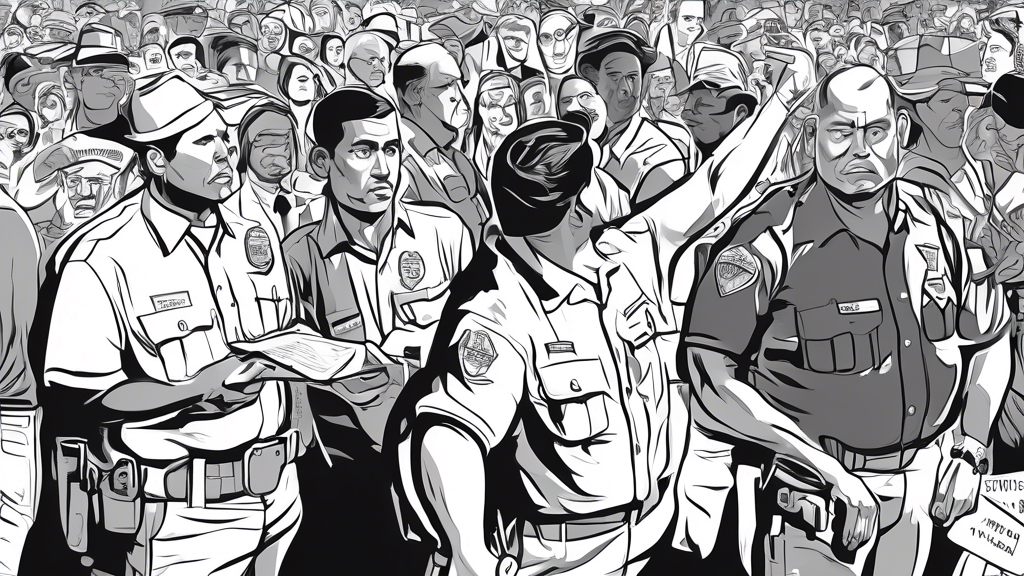
Understanding Arizona’s Proposition 314
Arizona’s Proposition 314 is a divisive measure that has sparked debates across the state and caught national attention. Its primary objective is to criminalize border crossings for noncitizens at places other than designated ports of entry. This proposition introduces a range of penalties, from a Class 1 misdemeanor to a Class 6 felony for repeat offenders. The expansive nature of the proposition raises vital questions about state versus federal jurisdiction in immigration matters and its potential impacts on local communities and economies.
Empowering Local Law Enforcement
One of the most contentious elements of Proposition 314 is its provision granting state and local law enforcement more power to question, arrest, detain, and prosecute individuals suspected of unlawful border crossings. For several decades, immigration enforcement has been largely considered a federal prerogative. By involving local authorities more directly in this domain, Proposition 314 reignites longstanding debates about the separation of powers and the potential implications for racial profiling within communities.
Authorization of Deportation Orders
Another groundbreaking aspect of Proposition 314 is the authorization for state courts to issue deportation orders. Traditionally, only federal authorities wield this power, causing legal experts to voice concerns about potential constitutional breaches. If enacted, this proposition could mark a significant shift in the enforcement landscape, challenging federal jurisdiction and potentially leading to a series of court battles.
Economic and Social Implications
Critics of Proposition 314 often cite the economic repercussions of similar legislative efforts in the past. The passage of SB 1070 in 2010 serves as a cautionary tale, where economic losses ensued due to widespread boycotts and a decline in employment numbers. Many fear a repeat scenario if Proposition 314 becomes law, with sectors that heavily rely on immigrant labor potentially facing substantial setbacks.
The proposition also mandates the use of the E-Verify system by employers and public agencies to validate the eligibility of individuals for public benefits and employment. While aimed at ensuring legal sportsmanship, it has raised concerns about its efficacy and its potential to burden businesses with increased administrative responsibilities.
Broadening the Debate: Public Opinion and Political Rhetoric
Despite the controversies and potential legal challenges, Proposition 314 appears to have significant support among Arizona’s voters. A survey conducted in September 2024 revealed that 63% of registered voters back the proposition, reflecting a strong public desire for tighter immigration controls. Yet, as the political discourse intensifies leading up to the presidential election, the proposition’s future is tethered to wider debates about national immigration policy.
Border security has become a pivotal theme in campaign rhetoric, with Republican nominee Donald Trump focusing on stricter enforcement and heightened deportation tactics. This ongoing discourse highlights the complexities of balancing state and federal roles in immigration and the social dynamics within border communities.
Meanwhile, border crossing statistics highlight the urgent nature of Arizona’s border issues, with nearly 200,000 apprehensions recorded in the Tucson sector alone early in the year. Although subsequent executive actions and international agreements have led to a reduction in crossings, the issue remains highly significant, emphasizing the persistent demands for effective, humane, and constitutionally sound immigration strategies.
